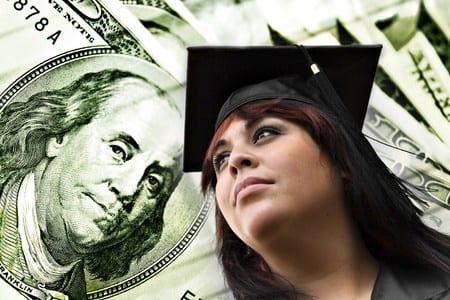 Before Bill Clinton became President, Student Loans were Dischargeable in Bankruptcy provided that the Student Loan was over seven years old, absent any deferrals. Congress, with Clinton’s cooperation, removed the seven year rule.
Before Bill Clinton became President, Student Loans were Dischargeable in Bankruptcy provided that the Student Loan was over seven years old, absent any deferrals. Congress, with Clinton’s cooperation, removed the seven year rule.
In 2005, Congress and George W Bush, enacted new Bankruptcy Legislation that provided that almost no Student Loans can be Discharged in Bankruptcy. One of the few ways that a bankruptcy attorney can provide for a Student Loan to be Discharged in Bankruptcy is if he or she can successfully convince a Bankruptcy Judge that the Student Loan creates an Undue Hardship for the Debtor.
In determining whether a Student Loan can be Discharged in Bankruptcy, the Bankruptcy Judge will generally define Undue Hardship by analyzing a number of factors, including what is the likelihood that the Debtor can work in his chosen field of study, the amount due under the Student Loan, the age and health of the Debtor, the financial condition of the Debtor, and whether any of these factors can change in the future. Congress in its Legislation never defined what constitutes Undue Hardship.
The Bankruptcy Courts usually define Undue Hardship in strict terms, and are hesitant to find that a Student Loan can be Discharged in Bankruptcy. However, many Debtors who have sought to secure a Discharge of Student Loans in Bankruptcy have been successful.
One reason for this success is that in order to secure a Discharge of a Student Loan in Bankruptcy, the Debtor or the Bankruptcy Attorney must bring what is referred to as an Adversary Proceeding. To prosecute an Adversary Proceeding is somewhat expensive and time consuming. Adversary Proceedings involve additional Bankruptcy Court Fees, costs of service of process, and if you hire a Bankruptcy Attorney to bring the Adversary Proceeding, you must pay additional Attorney Fees and Costs related to his employment.
I surmise that most Adversary Proceedings related to Student Loans are not brought in the Bankruptcy Courts without the Debtor or Bankruptcy Attorney feeling that there is a good basis for the argument of Undue Hardship.
Student Loans can be Discharged in Bankruptcy, sometimes, for reasons other than proving Undue Hardship. For example, if the Bankruptcy Attorney can prove that the Institution attended by the Debtor was not accredited, or lost its accreditation, or no longer exists, the Debtor might receive a Discharge of the Student Loan.
Also, the Bankruptcy Attorney can argue in some cases, that the Debtor did not receive an educational benefit from the Student Loan.
I have been practicing Bankruptcy Law in the Clearwater and Tampa Bay area since 1993, and have represented tens of thousands of my Clients in Bankruptcy. Of the many Clients that I have had that have Student Loan Debt, I estimate that less than 5% are eligible to Discharge their Student Loan in Bankruptcy.
The best candidate I recall who was eligible to Discharge a Student Loan in Bankruptcy was a man, approximately 75 years old who came to my Clearwater Office, when I was only practicing Bankruptcy Law for about 2 years, in 1995. If he brought an Adversary Proceeding in a Bankruptcy, arguing the Student Loan should be Discharged based upon Undue Hardship, he probably would be successful. The gentleman I refer to was convinced by a school that offered curriculum in air conditioning repair. The man completed all the requirements at the school and graduated with a certificate to be an air conditioning repairman. Unfortunately, no air conditioning company would hire the man because such work is relatively difficult physically, requiring climbing into attics and very hot places, and the man due to his age and deteriorating physical condition, could barely climb a ladder. Based upon the criteria used in determining Undue Hardship in Bankruptcy, there was little opportunity for the man to work in his desired field.
The man decided not to bring an Adversary Proceeding or file Bankruptcy.
Another reason a Debtor can seek the Discharge of a Student Loan in Bankruptcy is if the Debtor is disabled. This basis usually requires that a Social Security Disability Judge determines that the individual is disabled for purposes of obtaining Social Security Disability benefits. However, if the Debtor does not have any significant Debt other than the Student Loan, such Debtor can have the Student Loan eliminated without filing Bankruptcy. Be aware, however, that the Federal Government recently make it difficult for such Student Loan Debtors to seek forgiveness of Student Loans because of Disability.
If you have a Student Loan and am considering whether to file Bankruptcy to seek the Discharge of the Student Loan, please contact my Law Office at either 1-800-407-3328 or 727-539-7701. I will be able to speak with, or meet with you directly, to discuss whether such Student Loan can be Discharged in Bankruptcy. Weller Legal Group has Offices located throughout the Tampa Bay area, including Clearwater, Port Richey and Lakeland.
Image credit: Todd Arena

